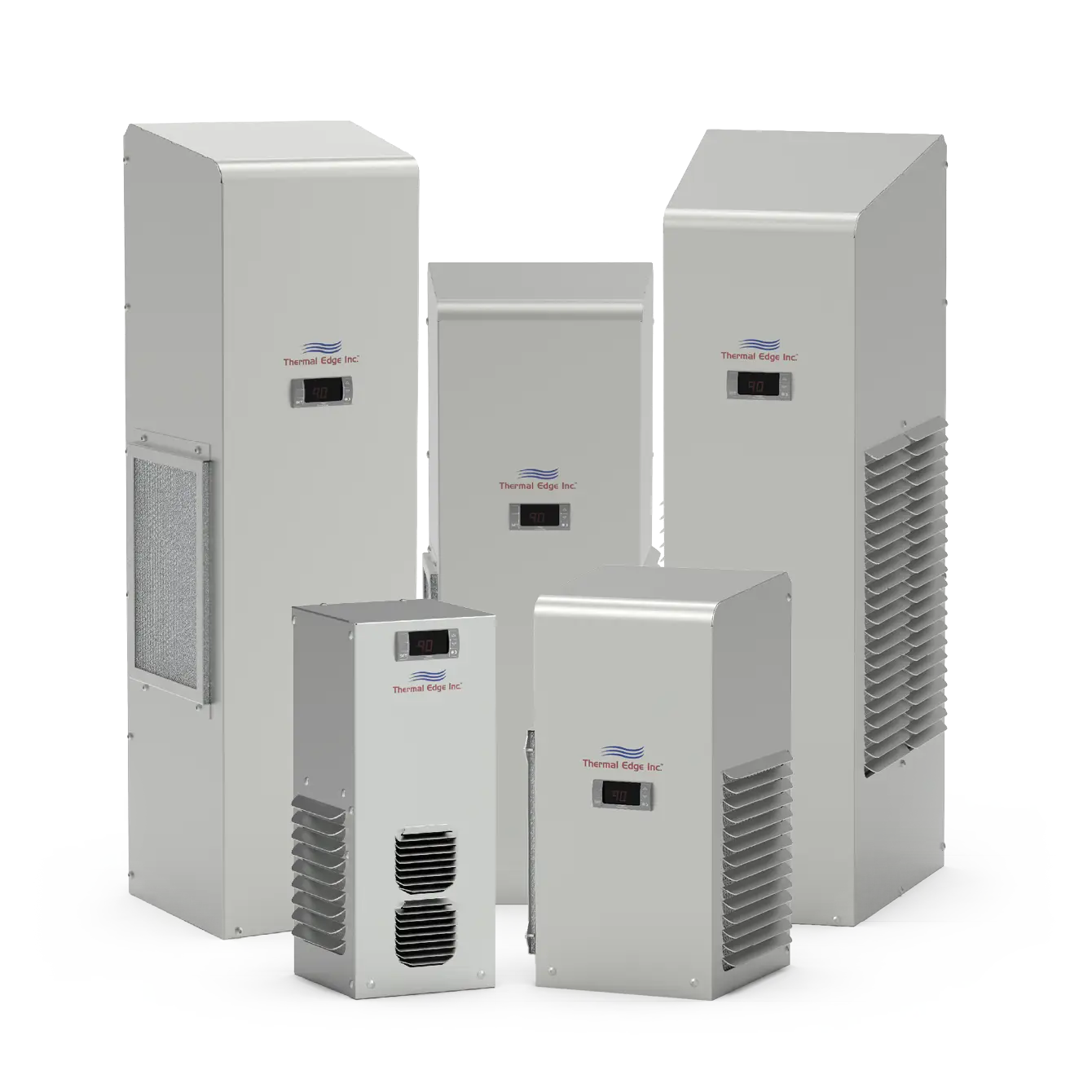Small Details of Enclosure Air Conditioners That Make a Big Difference

Unlike a residential cooling system, an enclosure air conditioner must accommodate special situations. The sometimes harsh environments where electrical enclosures are located make it necessary to ensure that the air conditioner protects the components inside beyond just cooling the cabinet. Some examples include:
- In a food processing environment with a lot of airborne flour particles, an unsealed cabinet would expose the electrical components inside to potential contamination.
- In a hazardous environment like an oil drilling site , it is not safe to employ a cooling unit that has not been qualified for the specific application.
- In a hospital or laboratory that must meet clean room standards, a condensate drain near the cooling unit is not always possible.
These types of situations are not uncommon, which is why enclosure air conditioner manufacturers have implemented certain features that are not necessarily available in off-the shelf units.
Notable Enclosure Air Conditioner Features
Most enclosure air conditioner manufacturers offer a standard range of products that are sufficiently designed to control the temperature inside the cabinet. However, when special circumstances arise, you want to be sure that your supplier offer the types of features that will ensure total protection of electrical components.
- External controls – When an enclosure air conditioner is a closed-loop system, it keeps external contaminants out of the cabinet. However, if you must open the cabinet to make adjustments, the closed-loop system becomes compromised and the parts inside may be exposed to damaging contaminants. If your enclosure is located in an environment with airborne contaminants or corrosive materials, look for a cooling system with external controls or controls with remote access capability to minimize risk.
- Hazardous locations – –Electrical enclosures are sometimes located in areas where fire or explosion hazards may exist. These enclosures and the air conditioners supplied with them must be designed and qualified for safety based on the flammable gasses or vapors present. Common hazardous locations require conformance with NEC Class I, Division 2, Groups B, C and D specifications.
- Condensate management systems – Condensate hoses and drains pose a number of potential problems in an industrial or clean environment. They can become clogged, overflow, or contain stagnant water. A condensate management system that evaporates the condensate rather than collecting or re-routing it, eliminates the need for drains near the unit. An enclosure air conditioner with this feature should also have the benefit of improving the efficiency of the system.
Thermal Edge offers all of these features and more. In fact, all of our enclosure air conditioners use energy saving condensate management systems to eliminate the need for drains. Programmable controllers with remote access features are also standard on every unit. Contact us today to get your free quote.
